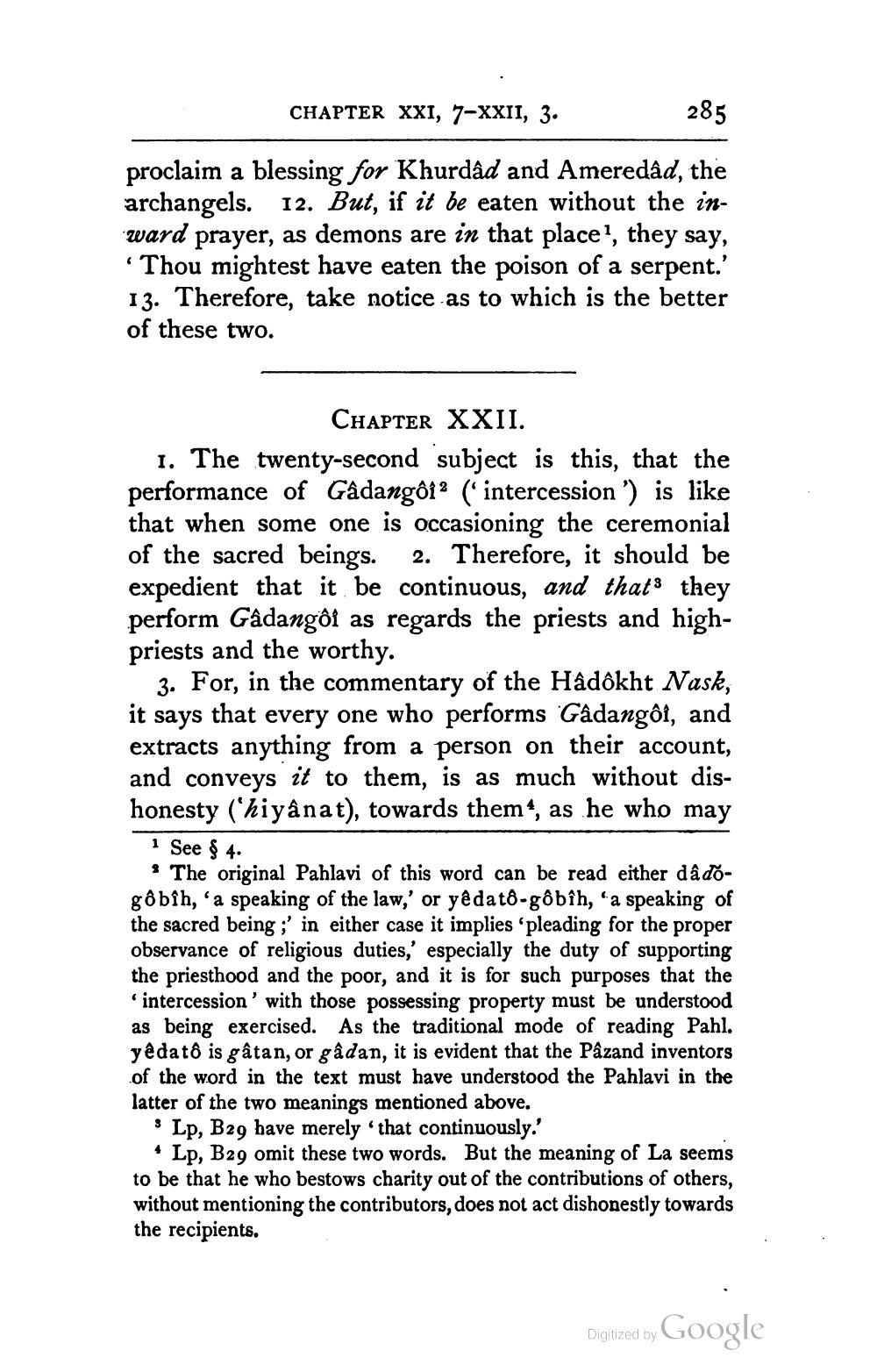________________
CHAPTER XXI, 7-XXII, 3.
285
proclaim a blessing for Khurdâd and Ameredâd, the archangels. 12. But, if it be eaten without the inward prayer, as demons are in that place?, they say, • Thou mightest have eaten the poison of a serpent.' 13. Therefore, take notice as to which is the better of these two.
CHAPTER XXII. 1. The twenty-second subject is this, that the performance of Gâdangôi? (' intercession') is like that when some one is occasioning the ceremonial of the sacred beings. 2. Therefore, it should be expedient that it be continuous, and thats they perform Gâdangôi as regards the priests and highpriests and the worthy.
3. For, in the commentary of the Hâdôkht Nask, it says that every one who performs Gâdangôi, and extracts anything from a person on their account, and conveys it to them, is as much without dishonesty ("hiyanat), towards them, as he who may
I See $ 4.
* The original Pahlavi of this word can be read either dâ dógôbîh, a speaking of the law,' or yê dato-gôbîh, 'a speaking of the sacred being ;' in either case it implies 'pleading for the proper observance of religious duties,' especially the duty of supporting the priesthood and the poor, and it is for such purposes that the "intercession' with those possessing property must be understood as being exercised. As the traditional mode of reading Pahl. yêdatô is gâtan, or gâdan, it is evident that the Pazand inventors of the word in the text must have understood the Pahlavi in the latter of the two meanings mentioned above.
: Lp, B29 have merely that continuously.'
* Lp, B29 omit these two words. But the meaning of La seems to be that he who bestows charity out of the contributions of others, without mentioning the contributors, does not act dishonestly towards the recipients.
Digitized by Google




